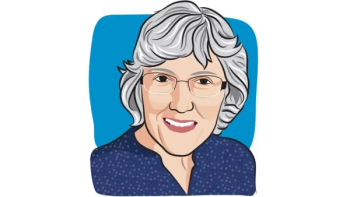
The NOCC's Fight to Save Lives Against Ovarian Cancer: 25 Years Strong
With the overall number of deaths from cancer in decline over the past 20 years, advocacy groups like the National Ovarian Cancer Coalition are doing their part to reduce this number further.
With the overall number of deaths from cancer in decline over the past 20 years,1 advocacy groups like the National Ovarian Cancer Coalition (NOCC) — the oldest and largest U.S.-based ovarian cancer advocacy organization — are doing their part to reduce this number further, and in the process, promote awareness and education on the disease that claims the lives of more women than any other cancer of the female reproductive system.2 Two key components of the NOCC’s mission include improving the survival rate and the overall quality of life for the women touched by this cancer, and while this might be a tall order for some groups, the NOCC has established itself as a major force of activism and support since its inception in 1991.
Knowledge Is Power
At present, ovarian cancer is a particularly tough nut to crack. There is no early detection test, and the first signs and symptoms are very subtle, often being mistaken for common health complaints and subsequently ignored at length.3 For the approximately 22,000 new cases diagnosed in the U.S. each year,3 however, knowledge is power. There is a substantial difference in the patient’s prognosis depending on when the cancer is caught, and early diagnosis can mean the difference between a 90 percent five-year survival rate and that of only about 30 percent when identified in the later stages.3 This illustrates in simple numbers why awareness is key: If the signs and symptoms become more readily recognized by the medical community and among women through self-detection, the measly 19 percent of cases caught in the early stages can eventually become a figure of the past.3
With these statistics in mind, having a better understanding of the disease and the work being done to treat it becomes paramount. The NOCC provides a plethora of resource materials on their site, from brochures and videos to a comprehensive list of informative links to explore. On a larger scale, their Research in Action initiative — a partnership between the NOCC and the Ovarian Cancer Research Fund and Ovarian Cancer Network Alliance — allows the group to fund and drive the Stand Up to Cancer Ovarian Cancer Dream Team. Additionally, to better educate the public and promote groundbreaking research, funding also goes toward educational projects, such as “The Ann Schreiber Ovarian Cancer Research Training Program of Excellence: A Study by Dr. Ruth Perets,” and clinical trials like the LIvES Study (overseen by the University of Arizona Cancer Center).
Just this past February, the NOCC’s efforts were further recognized in the charity community when they were given a covetable four‐star rating by Charity Navigator, America’s largest independent charity evaluator. This rating — an impressive 90 out of 100 — reflects the NOCC’s noteworthy measure of financial responsibility, as well as its transparency and accountability, in their advocacy and funding practices.4 When a cancer diagnosis has been passed down unexpectedly, it is reassuring to know that such a proven organization is both behind the scenes promoting lifesaving research, and out on the frontlines providing much-needed support and guidance on a personal level.
Always Have Hope
Over the years, the NOCC has worked to become a vital source of advocacy for patients and their loved ones, each of whom will handle the news of an ovarian cancer diagnosis differently. Local chapters across the nation serve to connect members with one another and act as the backbone of the NOCC’s volunteer community activities and awareness events. Getting involved in campaigns like “Faces of Hope” or “Why Teal?” can be an empowering and rewarding experience, as it ensures that hope and support are always available to those that may not yet know where to turn or what to expect.
Four tips come from Elizabeth Isham Corey, President of the National Ovarian Cancer Coalition, to those diagnosed with ovarian cancer5:
- Become educated;
- Get a good doctor for your team;
- Surround yourself with loving people and good support; and above all,
- Have hope.
References
- Simon S. Cancer Statistics Report: Death Rate Down 23% in 21 Years. American Cancer Society website. http://www.cancer.org/cancer/news/news/cancer-statistics-report-death-rate-down-23-percent-in-21-years. Published January 7, 2016.
- FAQs: how common is ovarian cancer? National Ovarian Cancer Coalition website. http://www.ovarian.org/faqs.php.
- What is Ovarian Cancer. National Ovarian Cancer Coalition website. http://www.ovarian.org/what_is_ovarian_cancer.php
- National Ovarian Cancer Coalition Earns Coveted 4‐Star Rating from Charity Navigator. Dallas, TX: The National Ovarian Cancer Coalition; February 12, 2016. http://ovarian.org/docs/Charity_Navigator_021216.pdf.
- Elizabeth Isham Cory on Ovarian Cancer. The National Ovarian Cancer Coalition YouTube channel. https://www.youtube.com/watch?v=QfJH3D0R_8w. Published April 6, 2012.
Fortunately, it is possible to check off each item through the NOCC. Headed into its 25th year, the organization has come a long way from its humble beginnings as a small group of dedicated survivors and advocates gathered around a kitchen table in Boca Raton, Florida. After all this time, the NOCC remains unwavering in its mission “to save lives by fighting tirelessly to prevent and cure ovarian cancer, and to improve the quality of life for survivors.” For more information, visit



